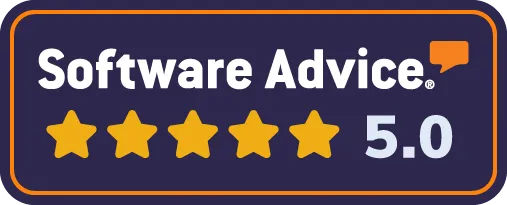
Reputation Management: The Unsung Hero of Small Business Success
In the bustling world of small to medium enterprises (SMEs) and local businesses, reputation is everything. It's the silent ambassador of your brand, influencing customer perceptions and driving business growth. Yet, many businesses overlook the importance of actively managing their reputation. This blog post will explore the critical role of reputation management and how it can be integrated with other business tools like social media management and CRM. It will also provide actionable insights backed by research.
The Importance of Reputation Management
1. Building Trust and Credibility
Trust is the foundation of any successful business relationship. According to a study by Edelman, 81% of consumers say that trust is a deciding factor in their purchasing decisions. Reputation management helps build and maintain this trust by ensuring that your business is perceived positively by customers, partners, and the community.
For SMEs, where word-of-mouth and local reputation can make or break success, actively managing your reputation is crucial. By monitoring and responding to customer feedback, you can demonstrate your commitment to quality and customer satisfaction, enhancing your credibility in the market.
2. Influencing Customer Decisions
In today's digital age, potential customers often turn to online reviews and ratings before making a purchase decision. A report by BrightLocal found that 87% of consumers read online reviews for local businesses, and 79% trust online reviews as much as personal recommendations.
By actively managing your online reputation, you can influence these customer decisions. Encouraging satisfied customers to leave positive reviews, responding promptly to negative feedback, and showcasing testimonials can all contribute to a favorable online presence that attracts new customers.
3. Enhancing Brand Image
Your brand image is a reflection of your business values, mission, and customer experience. Reputation management plays a vital role in shaping and enhancing this image. By consistently delivering on your brand promise and addressing customer concerns, you can create a positive brand image that resonates with your target audience.
A strong brand image not only attracts customers but also fosters loyalty and advocacy. According to a study by Nielsen, 92% of consumers trust recommendations from friends and family over any other type of advertising. By building a positive reputation, you can turn satisfied customers into brand advocates who promote your business to others.
Integrating Reputation Management with Other Business Tools
To maximize the impact of reputation management, it's essential to integrate it with other business tools. Let's explore how combining reputation management with social media management, CRM, and reporting and analytics can enhance your overall business operations.
Social Media Management: Amplifying Your Reach
Social media is a powerful platform for building and managing your reputation. By integrating reputation management with social media management tools, you can monitor brand mentions, engage with your audience, and respond to feedback in real-time.
A study by Hootsuite found that businesses that integrate social media and reputation management efforts see a 28% higher engagement rate. By actively participating in social media conversations and addressing customer concerns, you can amplify your reach and enhance your overall reputation.
CRM & Sales Management: Personalizing Customer Interactions
Integrating reputation management with your CRM system allows you to leverage customer data for more personalized interactions. By understanding customer preferences, purchase history, and feedback, you can tailor your communication and offers to meet their needs.
According to a study by Salesforce, 79% of business buyers say it's crucial to interact with a salesperson who is a trusted advisor. By integrating reputation management with CRM, you can build stronger relationships with customers and position your business as a trusted partner.
Reporting & Analytics: Measuring Success
To continuously improve your reputation management efforts, it's essential to monitor and analyze your performance. By integrating reputation management with reporting and analytics tools, you can track key metrics, such as customer satisfaction, review ratings, and brand sentiment, to gain insights into what's working and what needs improvement.
A report by McKinsey found that businesses that use data-driven decision-making see a 5-6% increase in productivity. By leveraging analytics, you can optimize your reputation management strategies and ensure that your efforts are aligned with your business goals.
Best Practices for Effective Reputation Management
To harness the full potential of reputation management, it's essential to follow best practices that ensure your efforts are effective and aligned with your business goals. Here are some key tips to keep in mind:
1. Monitor Your Online Presence
The first step in reputation management is to monitor your online presence. Use tools like Google Alerts, Mention, or Brandwatch to track brand mentions, reviews, and social media conversations. This will help you stay informed about what customers are saying about your business and identify any potential issues that need addressing.
2. Respond to Feedback Promptly
Responding to customer feedback promptly is crucial for maintaining a positive reputation. Whether it's a positive review or a negative comment, acknowledging and addressing customer concerns shows that you value their input and are committed to providing excellent service.
A study by ReviewTrackers found that 53% of customers expect businesses to respond to negative reviews within a week. By responding promptly, you can demonstrate your commitment to customer satisfaction and potentially turn a negative experience into a positive one.
3. Encourage Positive Reviews
Encouraging satisfied customers to leave positive reviews can significantly enhance your online reputation. Consider implementing a review request process, such as sending follow-up emails or offering incentives for leaving feedback.
According to a study by BrightLocal, 73% of consumers are more likely to leave a review if asked. By actively seeking positive reviews, you can build a strong online presence that attracts new customers and reinforces your brand image.
4. Address Negative Feedback Constructively
Negative feedback is inevitable, but how you handle it can make all the difference. Instead of ignoring or deleting negative comments, address them constructively by acknowledging the issue, apologizing if necessary, and offering a solution.
A report by Harvard Business Review found that businesses that respond to negative reviews see a 12% increase in customer advocacy. By addressing negative feedback constructively, you can demonstrate your commitment to improvement and potentially win back dissatisfied customers.
5. Foster a Customer-Centric Culture
Reputation management is not just about responding to feedback; it's about fostering a customer-centric culture that prioritizes customer satisfaction and engagement. Encourage your team to focus on delivering exceptional service and building strong relationships with customers.
A study by Deloitte found that customer-centric companies are 60% more profitable than those that are not. By fostering a customer-centric culture, you can enhance your reputation and drive long-term business success.
Real-World Examples of Reputation Management Success
To illustrate the impact of reputation management, let's explore some real-world examples of how businesses have successfully implemented these strategies to improve their reputation and drive growth.
Example 1: Turning Negative Feedback into Positive Outcomes
A local restaurant received a negative review about slow service during a busy night. Instead of ignoring the feedback, the owner responded promptly, apologizing for the inconvenience and offering a complimentary meal to the dissatisfied customer. The customer appreciated the gesture and updated their review to reflect the positive resolution. This proactive approach not only salvaged the relationship but also demonstrated the restaurant's commitment to customer satisfaction.
Example 2: Building a Strong Online Presence
A small boutique clothing store actively encouraged satisfied customers to leave positive reviews on Google and Yelp. By implementing a review request process and offering a small discount for feedback, the store built a strong online presence with numerous positive reviews. This enhanced their reputation and attracted new customers, leading to a 30% increase in foot traffic and sales.
Example 3: Leveraging Social Media for Reputation Management
A local fitness studio used social media to engage with its audience and manage its reputation. By actively participating in conversations, responding to comments, and sharing customer success stories, the studio built a loyal community of followers. This engagement led to increased brand awareness and a 20% increase in membership sign-ups.
Conclusion
In the competitive landscape of SMEs and local businesses, reputation management is an unsung hero that can drive success and growth. By building trust and credibility, influencing customer decisions, and enhancing your brand image, reputation management plays a vital role in shaping your business's future.
Integrating reputation management with other business tools, such as social media management, CRM, and reporting and analytics, can further amplify its impact and create a cohesive and efficient business operation.
Remember to follow best practices, such as monitoring your online presence, responding to feedback promptly, encouraging positive reviews, addressing negative feedback constructively, and fostering a customer-centric culture, to ensure your reputation management efforts are effective and aligned with your business goals.
With the right approach and tools, reputation management can transform your business, driving growth, customer satisfaction, and long-term success. So, don't overlook this powerful tool—embrace reputation management and unlock your SME's full potential.











